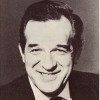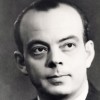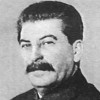“All right,” said Susan. “I’m not stupid. You’re saying humans need … fantasies to make life bearable.”
REALLY? AS IF IT WAS SOME KIND OF PINK PILL? NO. HUMANS NEED FANTASY TO BE HUMAN. TO BE THE PLACE WHERE THE FALLING ANGEL MEETS THE RISING APE.
“Tooth fairies? Hogfathers? Little –”
YES. AS PRACTICE. YOU HAVE TO START OUT LEARNING TO BELIEVE THE LITTLE LIES.
“So we can believe the big ones?”
YES. JUSTICE. MERCY. DUTY. THAT SORT OF THING.
“They’re not the same at all!”
YOU THINK SO? THEN TAKE THE UNIVERSE AND GRIND IT DOWN TO THE FINEST POWDER AND SIEVE IT THROUGH THE FINEST SIEVE AND THEN SHOW ME ONE ATOM OF JUSTICE, ONE MOLECULE OF MERCY. AND YET — Death waved a hand. AND YET YOU ACT AS IF THERE IS SOME IDEAL ORDER IN THE WORLD, AS IF THERE IS SOME … SOME RIGHTNESS IN THE UNIVERSE BY WHICH IT MAY BE JUDGED.
“Yes, but people have got to believe that, or what’s the point –”
MY POINT EXACTLY.
Quotations about:
abstract
Note not all quotations have been tagged, so Search may find additional quotes on this topic.
Vision is the art of seeing things invisible.
Jonathan Swift (1667-1745) English writer and churchman
“Thoughts on Various Subjects” (1706)
(Source)
Here is my secret. It is very simple. It is only with the heart that one can see rightly; What is essential is invisible to the eye.
[Voici mon secret. Il est très simple: on ne voit bien qu’avec le cœur. L’essentiel est invisible pour les yeux.]
Antoine de Saint-Exupéry (1900-1944) French writer, aviator
Le Petit Prince [The Little Prince] (1943)
Alternate translations:
- "Here is my secret. It is very simple: one sees well only with the heart. The essential is invisible to the eyes."
- "The essential things in life are seen not with the eyes, but with the heart."
A single death is a tragedy. A million deaths is a statistic.
Josef Stalin (1879-1953) Georgian revolutionary and Soviet dictator
(Attributed)
Alternate versions:The actual quote (such as is supported) appears to be "When one man dies it is a tragedy, when thousands die it's statistics." It is found in David McCullough, Truman (1992), said by Stalin to Churchill in Tehran when the latter was concerned over the potential casualties of opening a second front in France prematurely. McCullough cites it to Anton Antonov-Ovseyenko, The Time of Stalin: Portrait of Tyranny (1981).
- "Death of one man is a tragedy. Death of a million is a statistic."
- "One death is a tragedy. A million deaths is just a statistic."
- "When one dies, it is a tragedy. When a million die, it is a statistic."
- "The death of one man is a tragedy, the death of millions is a statistic."
On the other hand, Mary Soames (Churchill's daughter) said in a BBC interview with Andrew Marr (11 Nov 2011) that she overhead Stalin say this to her father at Potsdam, when Churchill was upset over the death of a family friend and then apologized to Stalin given the high number of Russian war casualties.
The earliest mention of the quote and Stalin is a 28 Sep 1958 book review.
Compare to Erich Maria Remarque, Der schwarze Obelisk (1956): "Sonderbar, denke ich, wir alle haben doch so viele Tote im Kriege gesehen, und wir wissen, daß über zwei Millionen von uns nutzlos gefallen sind — warum sind wir da so erregt wegen eines einzelnen, und die zwei Millionen haben wir schon fast vergessen? Aber das ist wohl so, weil ein einzelner immer der Tod ist — und zwei Millionen immer nur eine Statistik." [Strangely, I think we all have seen so many dead in the war, and we know that more than two million of us are unvalued -- why we are so excited because of an individual, and we have two million almost forgotten already? But that is probably so because a single death is always a death -- and two million only a statistic.]
Also compare to a 1925 essay on French humor, "Französischer Witz," by Kurt Tucholsky, German journalist, pacifist, and satirist. He wrote of a diplomat in the French Ministry of Foreign affairs, who said: "The war? I cannot find it to be so bad! The death of one man: this is a catastrophe. Hundreds of thousands of deaths: that is a statistic!" ["Darauf sagt ein Diplomat vom Quai d'Orsay: «Der Krieg? Ich kann das nicht so schrecklich finden! Der Tod eines Menschen: das ist eine Katastrophe. Hunderttausend Tote: das ist eine Statistik!"]







